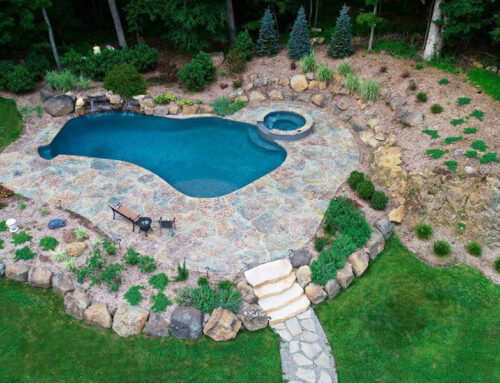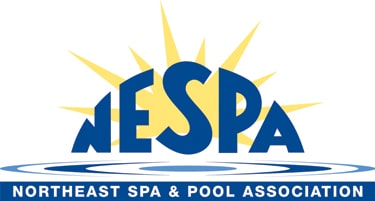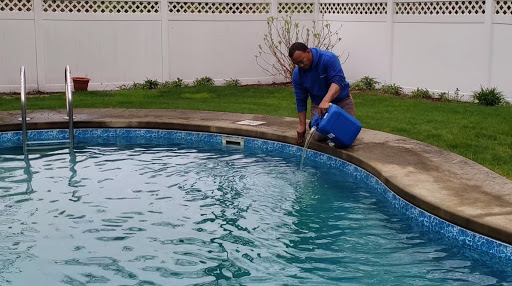 Maintaining a swimming pool requires some understanding of water chemistry—you should know the ideal pH for your pool and how to use a test strip. And, you’ll need some basic tools to keep your pool clean in between service visits. Regular maintenance helps extend the life of your pool or spa, which is why it’s a good idea to rely on a certified pool technician for tasks like opening and closing your pool, filter cleaning and changing, diagnosing and treating water issues, and weekly pool cleaning.
Maintaining a swimming pool requires some understanding of water chemistry—you should know the ideal pH for your pool and how to use a test strip. And, you’ll need some basic tools to keep your pool clean in between service visits. Regular maintenance helps extend the life of your pool or spa, which is why it’s a good idea to rely on a certified pool technician for tasks like opening and closing your pool, filter cleaning and changing, diagnosing and treating water issues, and weekly pool cleaning.
Still, there are some essential pool service supplies that all pool owners should have on hand. Here are the five must-haves our pool servicing team recommends:
#1 Shock (Chlorine)
You hosted a pool party with countless games of Marco Polo—plus adult swim. Now, you need to be sure the water is safe and free of bacteria. After a high bather load, you should shock your pool with liquid chlorine that is stronger than the chlorine that you or a pool technician might use on a weekly basis. Shock clears cloudy water and can help treat algae, too. Another time to shock your pool is after a heavy rain or storm.
#2 Skimmer
This pole tool has a flat net that can remove debris floating on the surface, such as leaves, insects, and droppings from overhanging trees and the surrounding landscape. Skimmers are available with interchangeable heads, but a basic skimmer net will do the job.
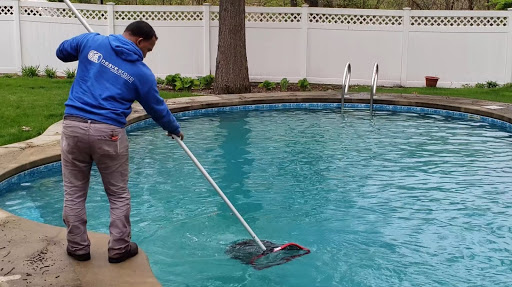
#3 pH Test Strips
How will you know if your pool water chemistry is on track? Most of the time, the water will not look different if the pH is off. This is where pH test strips come in handy. We recommend testing the pH of your pools water weekly, and always following a storm or heavy rain. (This will help you determine whether to shock the pool.) pH strips measure alkalinity, pH, free chlorine, total chlorine, total hardness, cyanuric acid and bromine (a chlorine alternative).
The ideal pH for pool water is 7.4, on a scale of 0 (acidic) to 14 (alkaline). Maintaining the proper pH is important because when pool chemistry is out of balance, it can damage swimming pool equipment, gunite and vinyl. You could end up with costly repairs.
The good news is, you don’t have to know which chemicals to add if your pH is off—and you don’t need to keep all of those chemicals on hand either. In fact, we recommend that you don’t. Once you have the pH test results, you can show the strip to a certified pool technician during a regular maintenance visit. The technician might retest and will determine what chemicals are needed, if any. If you decide to manage the pool chemistry yourself, it’s a good idea to get a hands-on lesson from a pool contractor first.
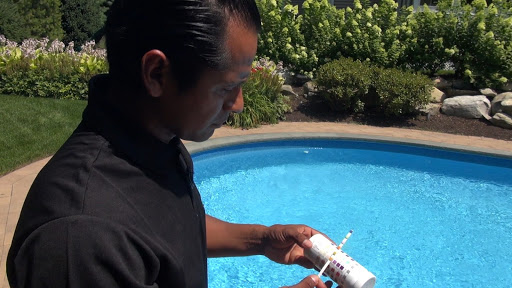
#4 Pool Brush
If you buy a multi-use pole with a skimmer head, you can attach a brush to the end for cleaning the pool sides and bottom. A pool brush is handy for in-between professional pool cleaning visits. Keep in mind, brushes are not designed for vinyl pools and can damage the material.
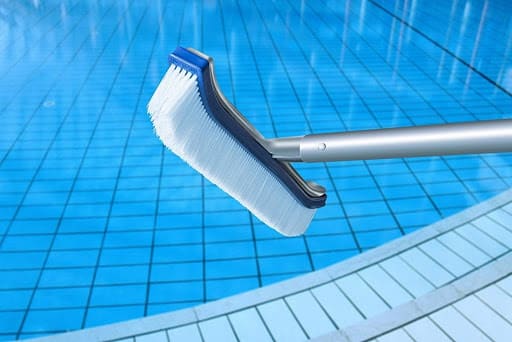
#5 Pool Vacuum
The vacuum consists of three parts: a hose, pole and vacuum head. Be sure to choose a vacuum head designed for the type of pool you own. There are specific vacuums for vinyl liners and gunite pool plaster. While the skimmer handles debris that rests on the water’s surface, a vacuum will suction out residue that can settle in the bottom corners of your pool.
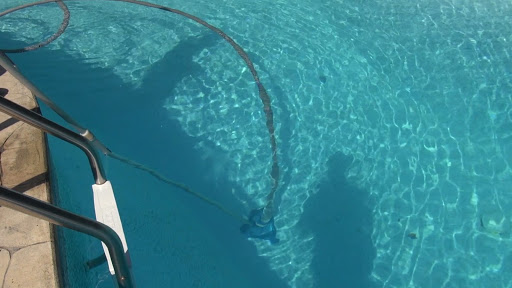
Get Set for Pool Season
It’s almost time to open your pool, and Neave is here to help! Pool opening is part of our complete seasonal service, which includes weekly visits for cleaning and chemical testing. Our experienced, certified staff is trained to identify potential problems before they become costly repairs. We want you to get the most out of your pool this year. Let us do the dirty work so you can enjoy your great outdoors.
For a free quote or information on how to take care of your pool, call us at 845-463-0592 in Hudson Valley, 914-271-7996 in Westchester and 203-212-4800 in Connecticut. Or, fill out our contact form and we’ll get in touch with you.



